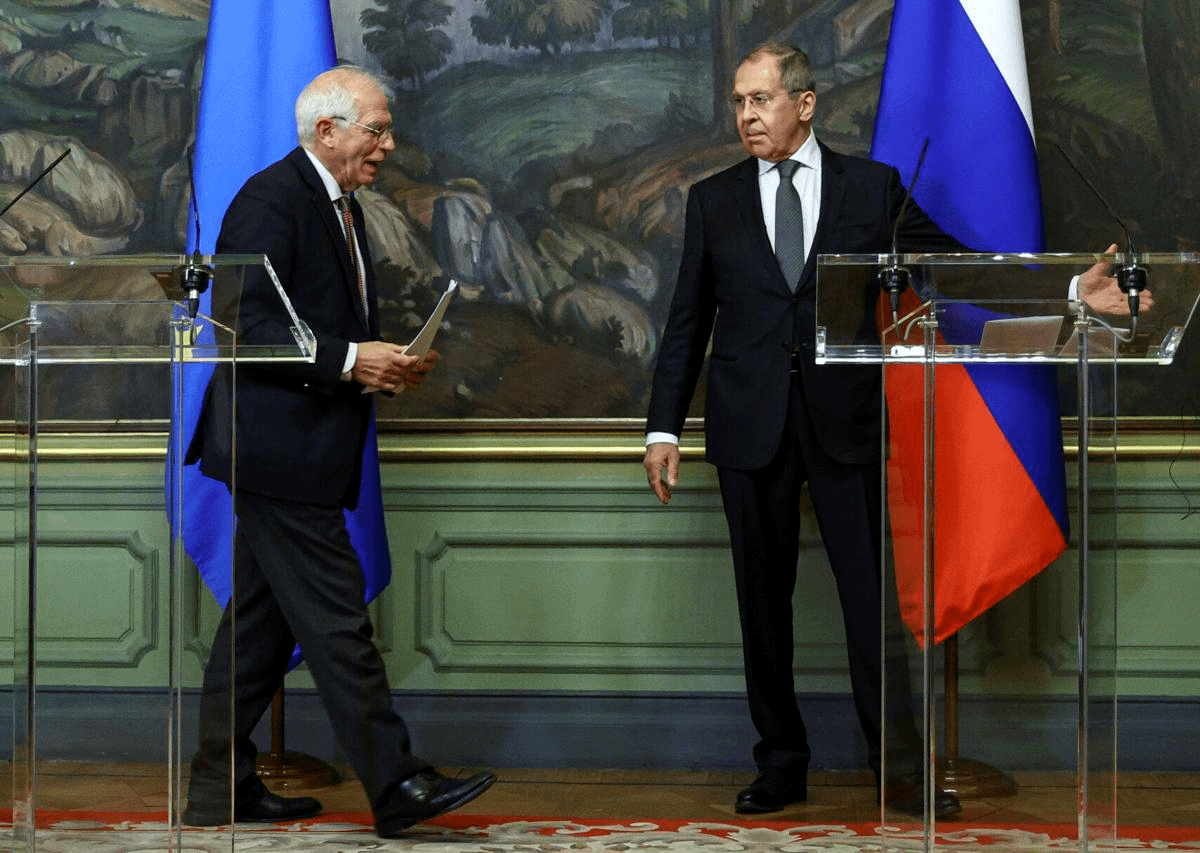

February 12, 2021: A recent press conference amid the EU’s top diplomat and Russia’s veteran foreign minister demonstrated diplomatic ties have plunged to a new low, which prompted some analysts to question if the trip could lead to further political consequences.
On Friday, EU foreign policy chief Josep Borrell visited Moscow to voice the EU’s opposition to Alexei Navalny’s arrest, a fierce critic of Russian President Vladimir Putin.
Also, Borrell learned through Twitter in his visit that Russia had expelled three diplomats of the EU for attending demonstrations while supporting Navalny.
Borrell said, “My meeting with Minister Lavrov highlighted that Europe and Russia are drifting apart. Russia is progressively disconnecting itself from Europe.” He described his visit to Moscow to be very complicated.
His controversial trip was received so poorly that a group consisting of 73 European lawmakers said action should be taken by European Commission President Ursula von der Leyen if he does not resign by his own accord.
They said in a joint letter that Borrell failed “to stand for the interests and values of the European Union during his visit,” which severely damaged the EU reputation.
The links of the EU and Russia have been fractious for some time, but their ties are critical given their shared economic, energy, and strategic interests.
Jade McGlynn, a research fellow at the Henry Jackson Society think tank, describes that the EU and Russia have a “coldly combustible” relationship, which follows Borrell’s Moscow trip. “The EU doesn’t have a proper Russia strategy. There is no point in having a reset with Russia when Russia does not want it,” Jade said.








© THE CEO PUBLICATION 2021 | All rights reserved. Terms and condition | Privacy and Policy